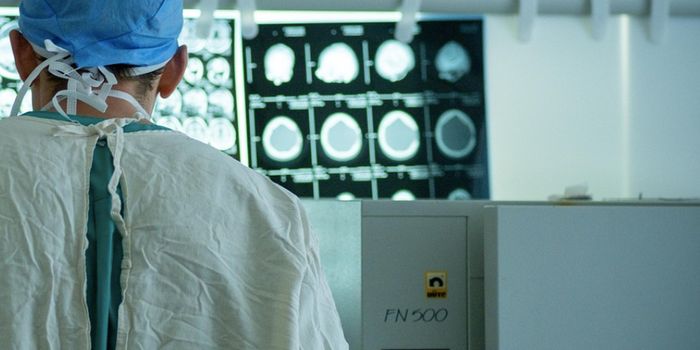COPD May be Caused by Aberrant Stem Cells
Chronic Obstructive Pulmonary Disease (COPD) is a term for a group of similar diseases that block airflow and disrupt breathing; it includes chronic bronchitis and emphysema. Together, they are one of the world's leading causes of death. While cigarette smoke and exposure to air pollution are thought to contribute to the disease, the exact causes are unknown. It's estimated that around 235 million people worldwide are affected. According to the CDC, there are millions of undiagnosed cases of COPD.
Researchers have now learned more about what may be causing COPD. The findings have been reported in Cell. Frank McKeon, professor of biology and biochemistry and director of the Stem Cell Center at the University of Houston, and research associate Wa Xian have found excessive amounts of stem cell variants in COPD patients' lungs. These variant stem cells fall into three categories, each of which can cause problems in the lungs.
"We actually found that three variant cells in all COPD patients drive all the key features of the disease. One produces tremendous amounts of mucins which block the small airways, while the other two drive fibrosis and inflammation which together degrade the function of the lung," said Xian. "These patients have normal stem cells, though not many of them, but they are dominated by the three variant cells that together make up the disease."
While COPD can be treated, there is no cure. "It's a frustrating disease to care for. We can try and improve the symptoms, but we don't have anything that can cure the disease or prevent death," said UConn Health pulmonologist and critical care doctor Mark Metersky, who collected stem cells from patient lung fluid during bronchoscopies.
The researchers have found that different parts of the airways give rise to similar but different stem cells.
"It's quite remarkable," said McKeon. "In the deep lung, the distal airway stem cells gave rise to both the distal tubes and the alveoli and our research indicates those are the stem cells that make it possible for lungs to regenerate on their own."
Unusual variants of stem cells were found in COPD lungs (compared to healthy lungs). These stem cells are known to be present in COPD patients and form metaplastic lesions, but they were not thought to cause the disease. When clones of these cells were transplanted into immunodeficient models, they caused COPD symptoms - chronic inflammation, hypersecretion of mucus, and fibrosis.
"The long-overlooked metaplastic lesions in COPD were, in fact, driving the disease rather than merely secondary consequences of the condition," said McKeon.
Xian and McKeon grew clones of lung stem cells, and are now working to target them for treatment.
"As we now know the specific cells responsible for COPD pathology, we can target them, much as we would cancer, with specific drugs that selectively kill them off and leave the normal cells to regenerate normal lung tissue," said Xian.
Sources: AAAS/Eurekalert! via University of Houston, Cell









